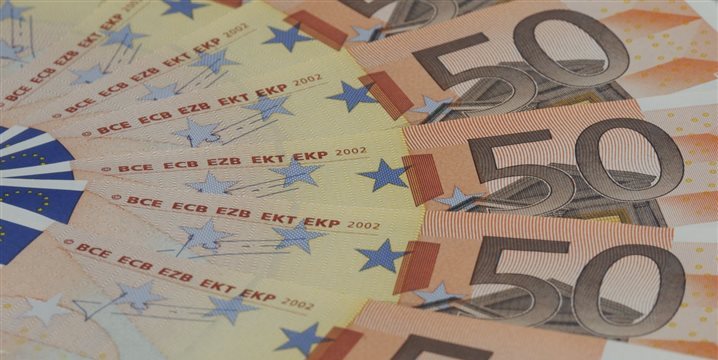On Tuesday the euro dropped to its lowest level in nearly a year against the dollar and euro zone government bond yields descended today on growing expectations the European Central Bank could ease monetary policy as soon as next week.
The shared currency fell as low as $1.3178 in Asian trade, its weakest since Sept. 9, before recovering slightly, with ECB chief Mario Draghi's comment last week that he was prepared to use all available tools if euro zone inflation fell further still resonating in markets.
Draghi also called for fiscal policy to play a greater role alongside monetary policy to revive the economy.
The ECB holds its next policy meeting on Sept. 4. Euro zone data due on Friday is forecast to show consumer prices rose just 0.3 percent this month, down from a 0.4 percent increase in July, well below the ECB's target of just less than 2 percent.
European shares were barely changed in early trade. The FTSEurofirst 300 index was flat at 1,366.57.
"Stocks are taking a breather following yesterday's acceleration. The mood remains quite positive after Draghi's comments, which confirmed that the ECB is determined to fight deflation," Saxo Bank trader Pierre Martin said.
The prospect of looser ECB policy and possibly further stimulus helped lift shares in Asia and on Wall Street, where the S&P 500 topped 2,000 for the first time.
MSCI's dollar-denominated index of Asia-Pacific shares outside Japan gave up its gains late in the day to trade flat.
In New York, the S&P 500 hit a record closing high, up 0.48 percent at 1,997.92, supported by gains in financial shares, which were seen as the main beneficiary of any cheap money from the ECB just as the U.S. Federal Reserve is preparing to end its bond-buying drive.
The dollar index .DXY, which measures the greenback against a currency basket, hit a one-year high in New York before falling back to trade 0.1 percent lower.
The euro was last at $1.3209, up 0.1 percent on the day, and the yen rose a similar amount at 103.90 to the dollar.
The firmer yen took a toll on shares in Japanese exporters. The Nikkei index closed down 0.6 percent.
German government bond yields, which hit a record low of 0.926 percent on Monday before pulling back, fell 1.4 basis points on Tuesday to 0.94 percent. Two-year yields rose slightly but remained negative at -0.04 percent.
"Euro/dollar is vulnerable to testing new lows. A downtrend is easily formed given the opposite directions Fed and ECB monetary policies are seemingly headed," said Kyosuke Suzuki, director of forex at Societe Generale in Tokyo.
French President Francois Hollande's call on Monday for a cabinet reshuffle after leftist rebel ministers argued for a U-turn on economic policy, had also helped push yields and the euro lower. A new government was expected to be unveiled on Tuesday.
Yields on peripheral euro zone debt, which the ECB could buy to pump money into the bloc's lackluster economy as part of an asset-purchase scheme known as quantitative easing, also fell.
U.S. Treasury yields fell in line with euro zone debt. Ten-year bonds dropped 1.4 bps to 2.38 percent.
Brent crude oil futures edged up towards $103 a barrel, although a glut of supply and weak economic data in major consumer countries curbed gains.
Gold picked up some strength, rising further from two-month lows. Spot gold last traded at $1,289.01 an ounce.



